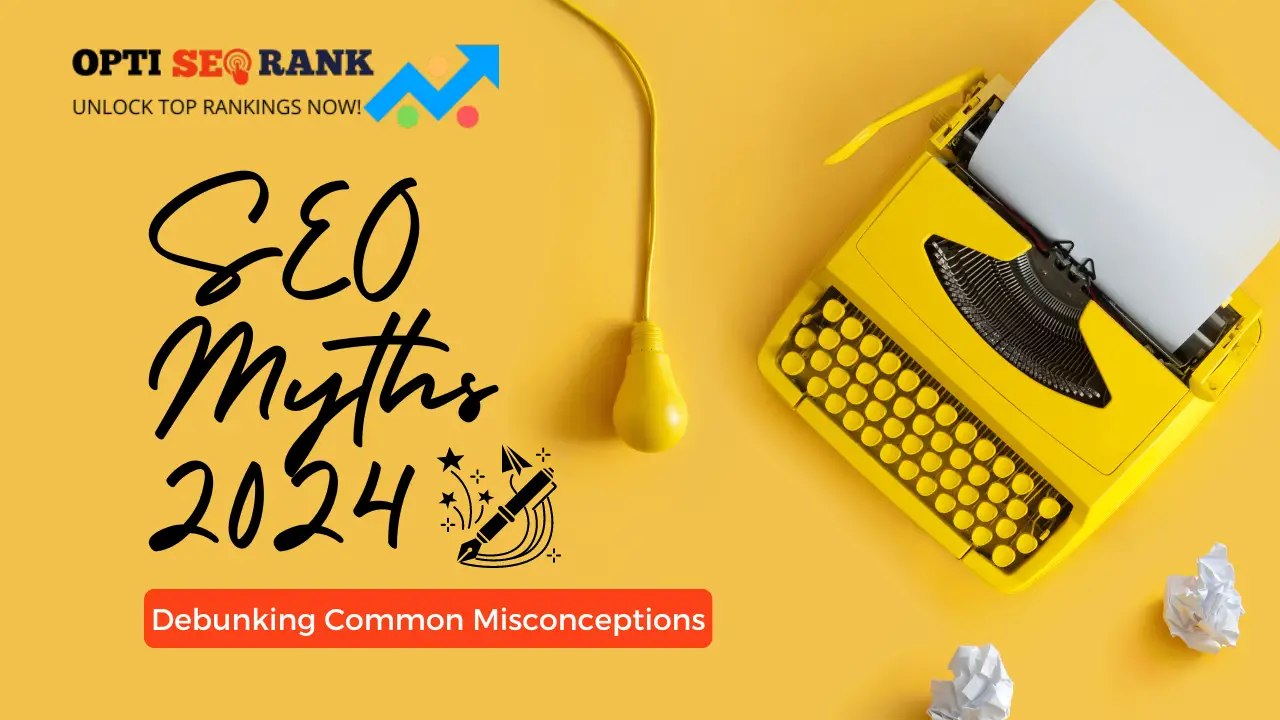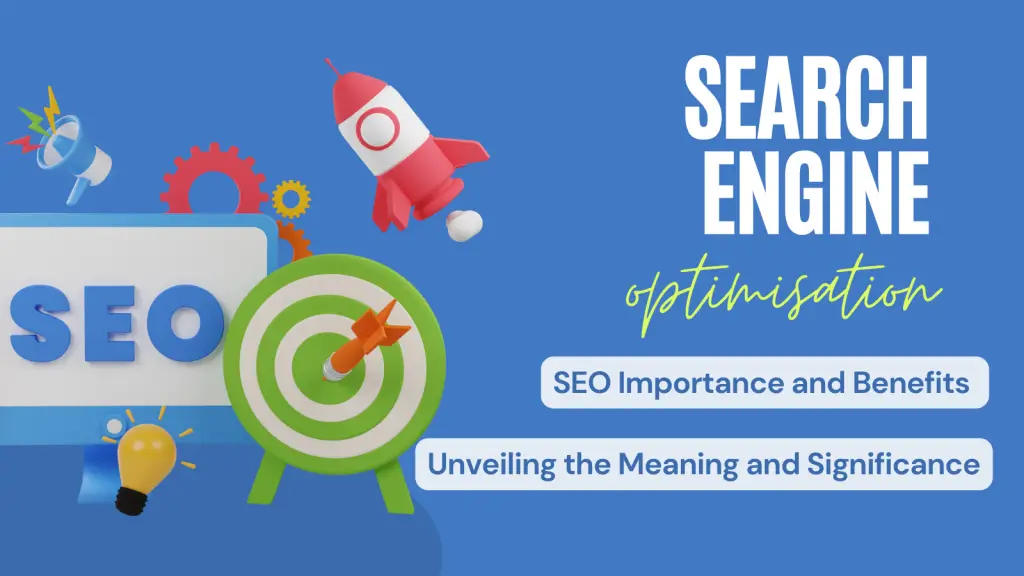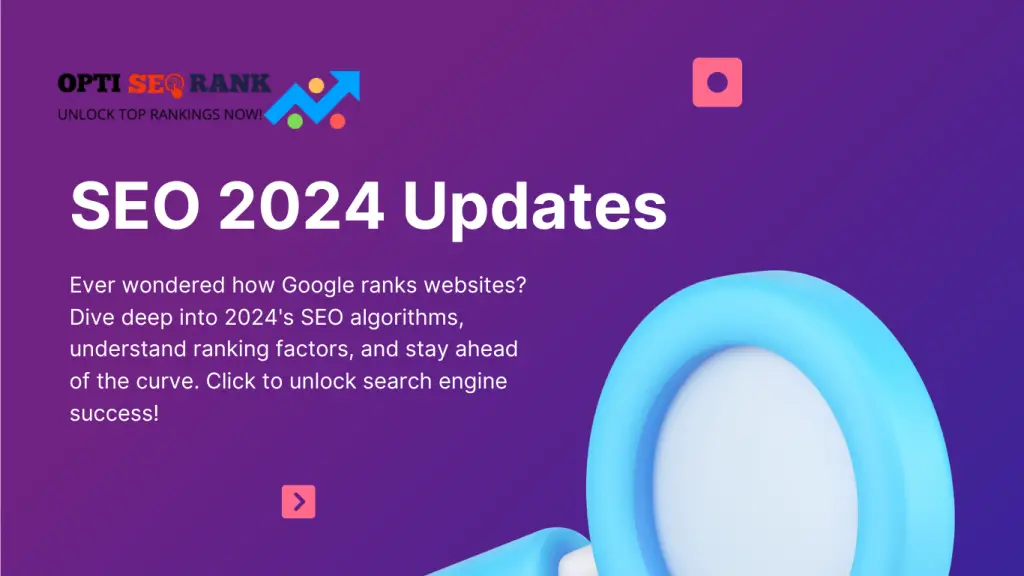SEO myths and misconceptions often mislead businesses. Understanding SEO accurately is crucial for effective digital marketing.
Many misconceptions surround SEO, causing confusion and misguided strategies. Some believe keyword stuffing boosts rankings, or that SEO is a one-time effort. These myths can hinder your website’s performance and visibility. This blog debunks common SEO myths and clarifies confusing topics.
By understanding the truth about SEO, you can implement effective strategies that enhance your search engine rankings and drive organic traffic. Whether you are a beginner or an experienced marketer, this guide will help you navigate the complexities of SEO with confidence and accuracy. Let’s demystify SEO and set the record straight.
Common Seo Myths
Search Engine Optimization (SEO) is full of myths. These myths confuse many website owners. Understanding the truth helps improve your website’s rank. Let’s debunk some common SEO myths.
Keyword Stuffing
Many believe keyword stuffing boosts rankings. This is not true. Keyword stuffing can harm your SEO. Search engines like Google penalize keyword stuffing.
Instead, use keywords naturally. Focus on high-quality content. Quality content attracts both users and search engines.
Here is a comparison:
| Keyword Stuffing | Natural Keyword Use |
| Repeated keywords | Keywords in context |
| Poor user experience | Engaging content |
| Search engine penalties | Better rankings |
Meta Tags
Some think meta tags no longer matter. This is a myth. Meta tags are still important. They help search engines understand your content.
Focus on meta titles and meta descriptions. Meta titles should include primary keywords. Meta descriptions should be engaging and relevant.
- Meta titles: Keep them under 60 characters.
- Meta descriptions: Aim for 150-160 characters.
- Use unique meta tags for each page.
Optimized meta tags improve click-through rates. This can boost your rankings indirectly.
Content Quality
Many people believe myths about SEO and content quality. Some think longer content is better. Others believe frequent updates are key. Let’s debunk these myths and clarify some confusing topics.
Length Vs. Value
Many people think long content ranks better. This is not true. Value matters more than length. Search engines prefer content that answers user questions. A short, valuable article can rank higher than a long, fluff-filled one.
| Myth | Reality |
| Longer content always ranks better. | Value is more important than length. |
| Short articles can’t rank high. | Short articles can rank if they are valuable. |
Frequency Of Updates
Some believe updating content often boosts SEO. This is a misconception. Quality updates are more important than frequent updates. Search engines look for updated content, but only if it improves the value.
- Update content when it adds new value.
- Do not update just for the sake of it.
- Ensure updates are meaningful and relevant.
In summary, focus on content quality. Create valuable, relevant content. Don’t worry about length or frequent updates. Quality always wins.
Backlinks And Their Importance
Backlinks are like votes of confidence from other websites. They tell search engines your content is valuable. Backlinks are crucial for SEO. They can boost your website’s ranking. Understanding their importance is key to a successful SEO strategy.
Quantity Vs. Quality
Many believe more backlinks mean better SEO. This is a common myth. Quality matters more than quantity. A few high-quality backlinks are better than many low-quality ones.
High-quality backlinks come from reputable sites. They have high domain authority. Search engines trust these links more. Low-quality backlinks can harm your SEO. They may come from spammy or irrelevant sites.
| High-Quality Backlinks | Low-Quality Backlinks |
| Come from reputable sites | Come from spammy sites |
| Have high domain authority | Have low domain authority |
| Boost your SEO | Harm your SEO |
Link-building Strategies
There are many strategies to build backlinks. Focus on creating valuable content. Content people want to link to. Guest posting is another effective method. Write articles for other websites. Include a link back to your site.
Broken link building is also useful. Find broken links on other sites. Offer your content as a replacement. Social media can help too. Share your content on social platforms. Encourage others to link to it.
- Create valuable content
- Guest posting
- Broken link building
- Use social media
Remember, building high-quality backlinks takes time. Focus on quality over quantity. Use effective link-building strategies. This will improve your SEO and website ranking.
Technical Seo Misconceptions
Technical SEO is often surrounded by myths and misconceptions. These misunderstandings can lead to ineffective strategies and wasted efforts. In this section, we will debunk some of the most common technical SEO misconceptions, focusing on Page Speed and Mobile Optimization.
Page Speed
Many believe that page speed is not a critical factor for SEO. This is not true. Page speed directly affects user experience and search engine rankings. A slow-loading site can lead to higher bounce rates. Search engines like Google use page speed as a ranking factor.
To improve page speed, consider the following tips:
- Compress images to reduce their size.
- Use a Content Delivery Network (CDN).
- Minimize HTTP requests.
- Enable browser caching.
Here is a quick comparison of page speed impacts:
| Page Load Time | Impact on Bounce Rate |
| 1-3 seconds | 32% higher bounce rate |
| 1-5 seconds | 90% higher bounce rate |
| 1-6 seconds | 106% higher bounce rate |
| 1-10 seconds | 123% higher bounce rate |
Mobile Optimization
Some think mobile optimization is optional. This is another misconception. Mobile optimization is crucial for SEO. More users now browse the web on mobile devices than on desktops.
Consider these mobile optimization tips:
- Use a responsive design.
- Ensure fast mobile load times.
- Optimize images for mobile devices.
- Use readable fonts and sizes.
Mobile optimization affects user experience and search engine rankings. Google uses a mobile-first indexing approach. This means Google primarily uses the mobile version of a site for indexing and ranking.
Algorithm Updates
Algorithm updates are crucial for search engines. They help improve user experience. Google’s algorithm updates can affect your website’s ranking. Knowing about these updates is essential for any SEO strategy. Let’s dive into some common myths and misconceptions.
Impact On Rankings
Many believe all algorithm updates drastically impact rankings. This is not always true. Some updates are minor and may not affect your site. Google’s major updates like Panda or Penguin are more impactful. It’s important to differentiate between minor and major updates.
Here are common misconceptions about algorithm updates:
- Every update means a ranking drop: Not true. Some updates improve rankings.
- Immediate changes are necessary: Panicking can lead to poor decisions. Evaluate first.
- Only big sites are affected: Small sites can also be impacted by updates.
Avoid making hasty decisions after an update. Analyze the changes carefully.
Keeping Up-to-date
Staying updated with algorithm changes is essential. Google rolls out several updates each year. You don’t need to panic after every update. Instead, focus on these strategies:
- Follow credible SEO news sources.
- Join SEO communities and forums.
- Subscribe to Google’s webmaster blog.
- Use SEO tools that track updates.
Understanding the update helps you adapt your strategy. Regularly monitor your website’s performance. This helps you identify any impact from updates quickly.
Consider using a table to track updates:
| Update Name | Release Date | Impact Level |
| Panda | February 2011 | High |
| Penguin | April 2012 | High |
| Hummingbird | August 2013 | Medium |
Tracking updates helps you understand their impact. This information is crucial for maintaining or improving your site’s rankings.
Local Seo Myths
Local SEO is crucial for small businesses. Many myths and misconceptions surround it. These myths can hurt your online presence. Let’s debunk some common local SEO myths.
Google My Business
Google My Business (GMB) is not a one-time setup. Some believe setting up a GMB profile is enough. This is a myth. Regular updates and interaction are essential. Post updates, answer reviews, and add photos often.
Another myth is that GMB is only for businesses with physical stores. Even service-based businesses benefit from GMB. Categories and service areas help attract local customers. Keep your information accurate and updated.
Local Keywords
Some think local keywords are just city names. This is incorrect. Local keywords should include services plus location. Use phrases like “plumber in New York” or “best bakery in Chicago”.
Another myth is that local keywords don’t need to change. Local trends and needs vary. Research and update keywords regularly. Use tools like Google Keyword Planner for insights.
Targeting local keywords helps your site rank higher. It attracts the right audience. Don’t ignore the power of the right keywords.
Social Media And Seo
Many believe that social media directly impacts SEO. This belief leads to confusion. Understanding the real relationship between social media and SEO is crucial. Let’s debunk some myths and clarify confusing topics.
Social Signals
Some say social signals like likes and shares boost SEO. This is a myth. Google has stated that social signals are not direct ranking factors. Search engines do not count likes, shares, or followers. Instead, search engines focus on the quality of content.
While social signals don’t directly impact SEO, they do have indirect benefits. For example:
- Increased brand awareness
- More traffic to your website
- Higher chances of earning backlinks
These benefits can indirectly help your SEO efforts. Focus on creating shareable and engaging content.
Content Sharing
Content sharing on social media can drive traffic to your site. It can also increase your content’s visibility. When people share your content, it reaches a wider audience. This can lead to more backlinks and mentions. Search engines value these backlinks and mentions.
To maximize the benefits of content sharing:
- Create high-quality, valuable content
- Encourage your audience to share your content
- Use engaging visuals and headlines
Remember, quality content is more likely to be shared. Focus on your audience’s needs and interests.
In summary, social media and SEO are connected indirectly. While social signals do not directly impact rankings, they can help in other ways. Prioritize creating valuable content and encouraging sharing.
Seo Tools And Analytics
Understanding SEO tools and analytics is crucial for any SEO strategy. These tools provide insights into website performance, keyword rankings, and user behavior. However, there are myths and misconceptions about their usage. Let’s debunk some common ones.
Overreliance On Tools
Many believe that using SEO tools guarantees success. This is a myth. Tools are helpful but cannot replace human intuition and experience. They provide data but lack context and understanding of your unique business needs.
SEO tools should support your strategy, not dictate it. Relying solely on them can lead to missed opportunities. Tools can identify trends but cannot set goals or create content. Always use tools as aids, not as the primary decision-makers.
Interpreting Data
Interpreting data from SEO tools can be confusing. Many users misinterpret metrics, leading to poor decisions. Understanding what each metric means is essential. Focus on actionable insights rather than vanity metrics.
For example, a high bounce rate may seem bad. But it could mean users find what they need quickly. Context matters. Use multiple metrics to get a complete picture. Combining data from different sources provides more accurate insights.
Below is a table summarizing some common metrics and their interpretations:
| Metric | Common Misconception | Correct Interpretation |
| High Bounce Rate | Site is performing poorly. | Users might be finding info quickly. |
| Low Click-Through Rate (CTR) | Keywords are not relevant. | Check meta tags and snippets. |
| Page Views | More page views mean better performance. | Quality of visits is more important. |
Always question the data and look for deeper insights. SEO tools and analytics are powerful, but they need careful interpretation. Use them wisely and always in combination with human analysis.
Frequently Asked Questions
Why Is Seo So Confusing?
SEO can be confusing due to its ever-changing algorithms, complex strategies, and varied ranking factors. Keeping up requires constant learning.
What Is The Biggest Problem With Seo?
The biggest problem with SEO is staying updated with constantly changing algorithms. Search engines frequently update their guidelines, making it challenging to maintain high rankings.
What Are The Common Seo Mistakes __________________?
Common SEO mistakes include keyword stuffing, neglecting meta tags, poor-quality content, ignoring mobile optimization, and slow page speed.
What Are Some On Page Seo Mistakes?
Common on-page SEO mistakes include keyword stuffing, missing meta tags, poor internal linking, slow page load speed, and duplicate content.
Conclusion
Dispelling SEO myths helps businesses make informed decisions. Understanding true SEO principles leads to better strategies and results. Avoiding common misconceptions can improve your site’s visibility. Keep learning and adapting to stay ahead in the SEO game. Remember, effective SEO is a journey, not a quick fix.



